13 accessories from the past that contain secret meanings (14 photos)
Fashionistas and fashionistas of the past loved to complement their looks with various jewelry, emphasizing not only beauty, but also status. Brooches, collars, rings - all this was in abundance among wealthy gentlemen 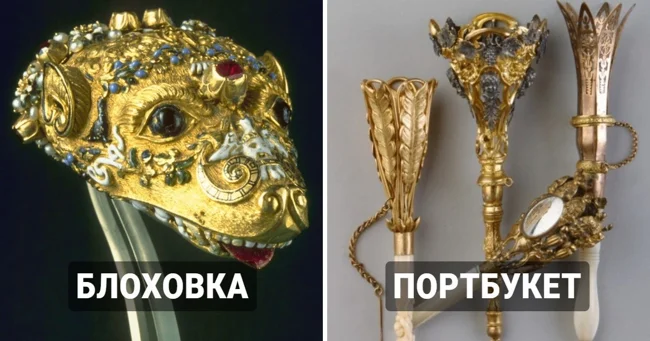
. However, sometimes they used rather strange accessories that would probably surprise many people today. We are talking not only about the design, but also about the purpose of these things.
Blokhovka 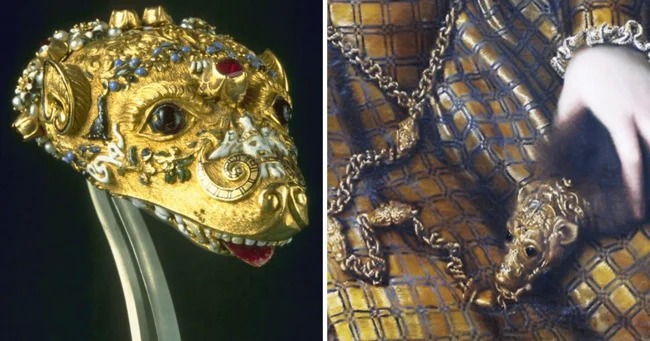
It was a rather strange and at the same time incredibly popular decoration among aristocrats in the 15th-16th centuries. It was the skin of a fur-bearing animal with an artificial head and paws, which was decorated with various jewelry. Some experts believe that such a strange accessory helped in catching fleas (of which there were an incredible number in those days). Others are inclined to believe that the product was used for beauty and to demonstrate high status.
Fibula 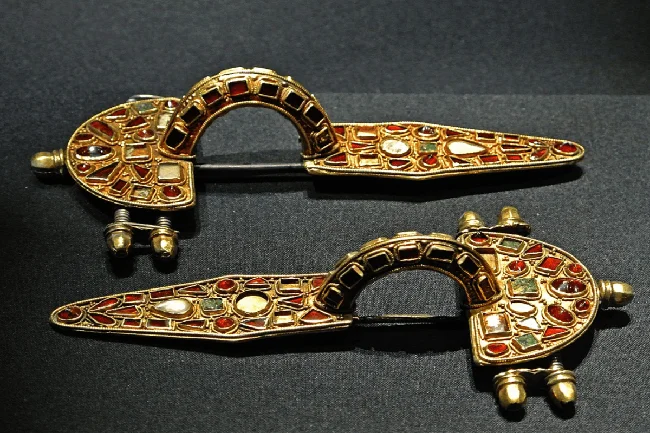
Brooches were used by both men and women. This accessory replaced buttons and helped hold clothes in place. Moreover, he was also incredibly handsome. A little later, the product was transformed into the already familiar safety pin.
Tobacco bubble 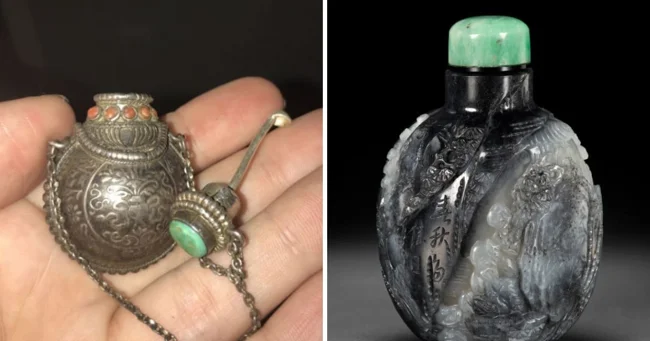
In the 19th century, such bottles were extremely popular among tobacco lovers. They were made from semi-precious stones and metals. The main feature of the accessory is a special small spoon that allows you to scoop out the required dose of tobacco. The bottles first appeared in China, and later migrated to European aristocrats.
"Eye" portrait 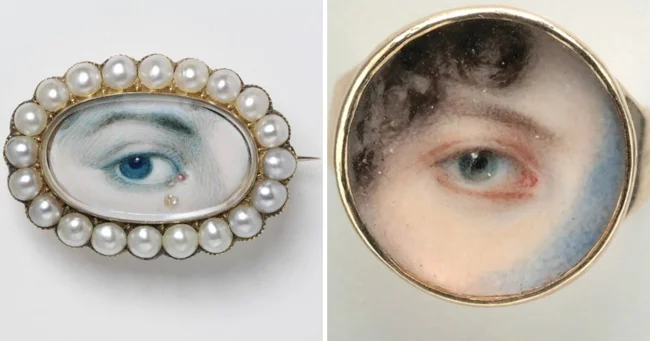
One of the most romantic pieces of jewelry that allowed you to demonstrate your feelings without revealing your personality. The fashion for eye miniatures was relatively short-lived, from about 1785 until the mid-nineteenth century.
Pomander 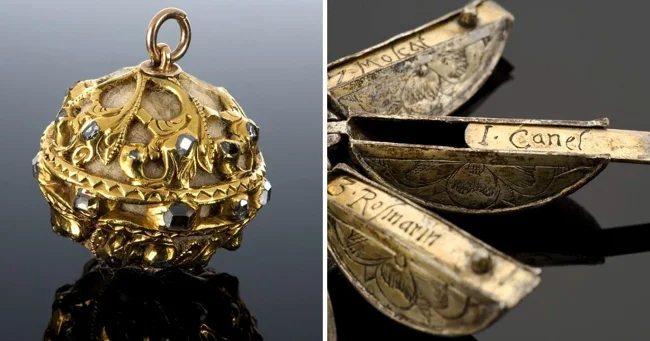
The once popular accessory served as an air freshener (approximately in the 13th-17th centuries). The owner could choose the desired aroma himself, filling the compartments of the container with various herbs and incense.
Portbouquet 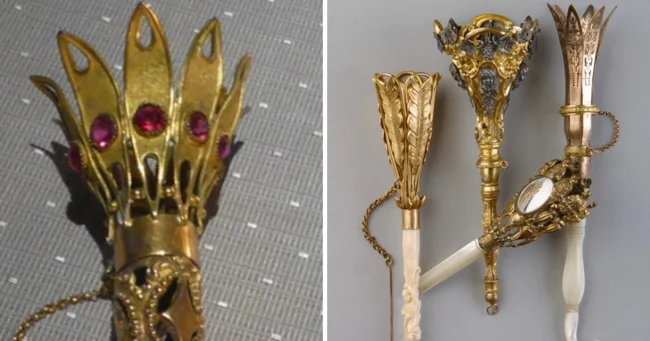
This is a case for fresh flowers, which was actively used from the 14th to the 19th centuries. It allowed you to carry a bouquet without getting your hands or outfit dirty. Sliding legs instantly turned the accessory into a miniature vase.
Ball book (carne) 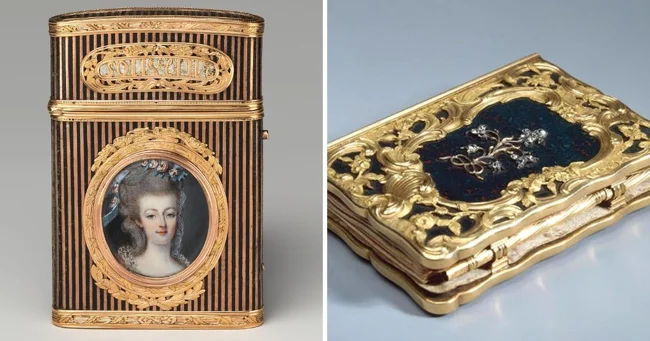
This cute ladies' accessory was used as a notebook in which dance numbers and the names of gentlemen were entered. Was in fashion in the 18th-20th centuries.
Chatelaine 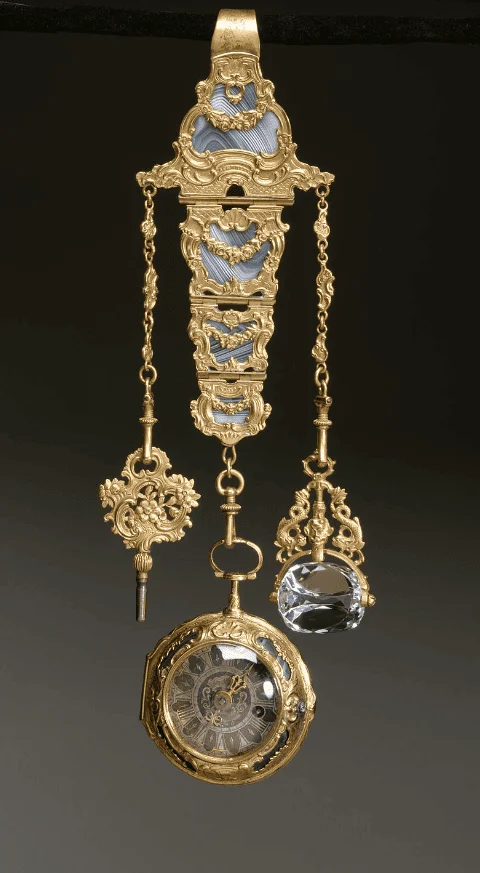
In the 18th-20th centuries, the chatelaine performed not only an aesthetic, but also a practical function. It was a kind of belt with various clips on which all sorts of trinkets were attached, such as watches, keys, seals and a wallet.
Ring with a secret 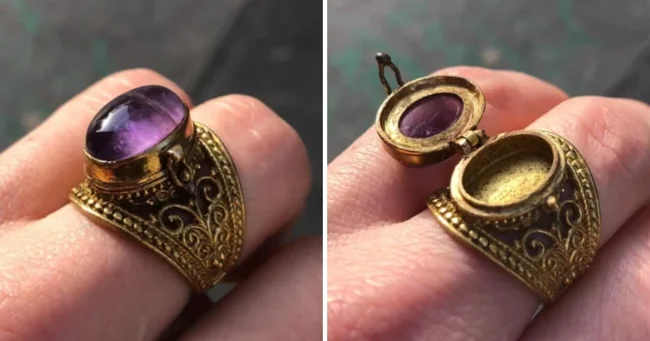
Such rings appeared in Europe in the 16th century. Previously, they were actively used in India and the Far East. Inside the decoration there was a cache in which poison was stored. It was usually quietly added to the food or drink of a potential victim.
Funeral brooch 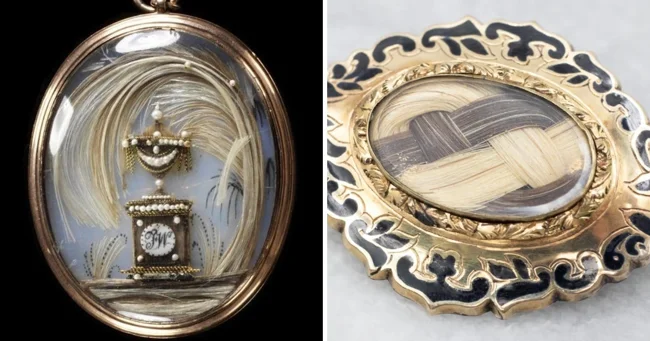
In the 19th century, brooches and other mourning jewelry were incredibly popular, partly made from the hair of a loved one.
Archer's Ring 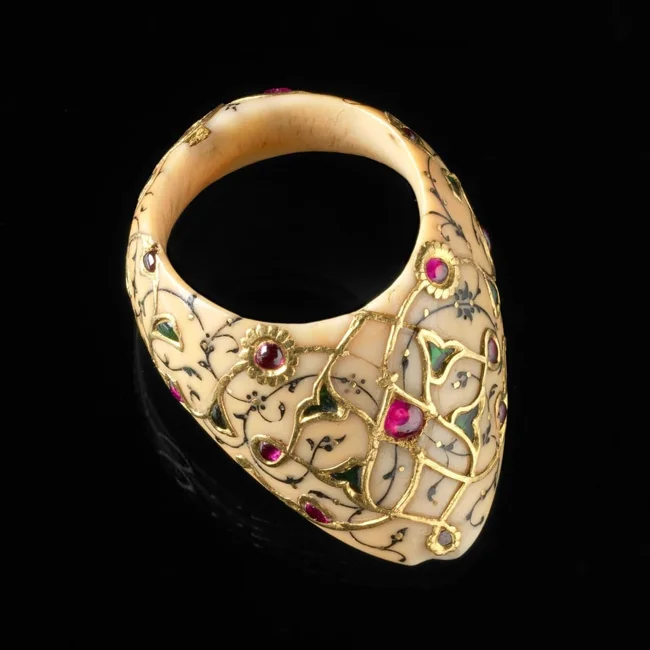
The ring was worn on the thumb when archery to protect against damage from the bowstring.
Gimmel rings 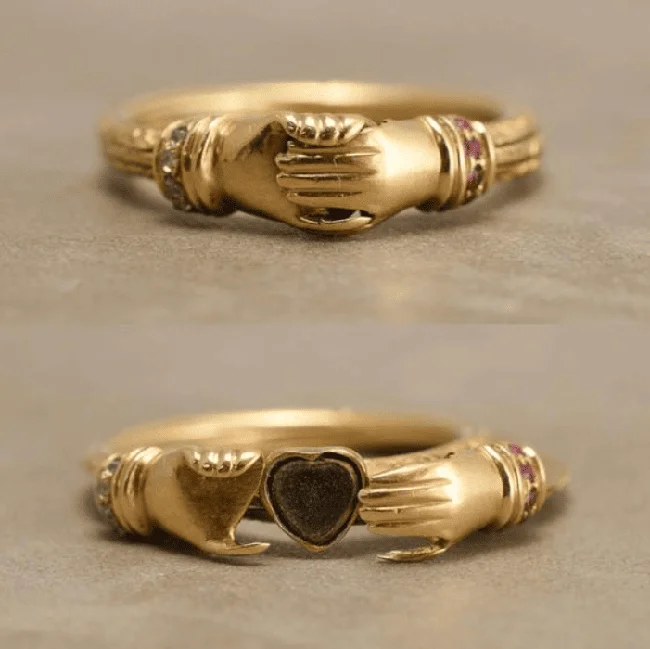
Unusual puzzle rings that have been used as wedding rings since the early 15th century. As a rule, they consisted of two or three rings, folded into a single piece of jewelry (one ring belonged to the husband, the second to the wife, and the third to the witness).
Ring Watches 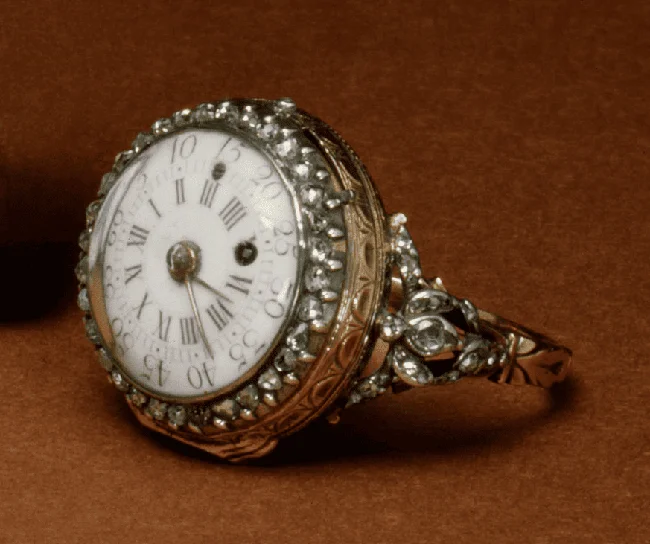
Such jewelry began to gain popularity at the beginning of the 20th century. They made it possible to emphasize status and accurately navigate in time.
